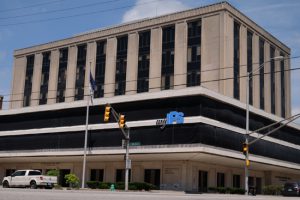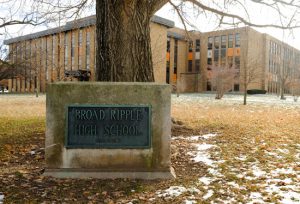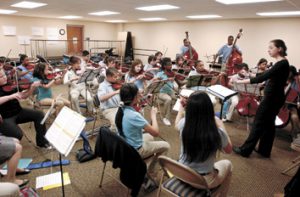IPS pushes back on plan to convert Howe, Manual into charter schools
The district does not support the charter recommendation and is requesting the state board of education delay its decision by a month.
The district does not support the charter recommendation and is requesting the state board of education delay its decision by a month.
Indianapolis Public Schools parents, educators and residents have started weighing in on what they would like to see in their next superintendent, but so far there is no clear consensus.
The more generous scale has boosted IPS’ performance as it launches a new strategy of partnering with charter operators, by allowing some innovation network schools to earn high marks despite overall low test scores.
It’s a departure for the district, which has handed six neighborhood schools to outside charter partners since the creation of innovation schools four years ago.
Indianapolis Public Schools is giving raises to about 1,700 employees, less than three months after voters approved an increase in property taxes to boost school funding.

The IPS board on Thursday unanimously voted against two bids for the district’s downtown headquarters because they didn’t come close to the $7 million the district had hoped to receive for the property.

Indianapolis Public Schools staffers are expected to ask the board this week to reject two proposals to buy the district’s downtown headquarters, after the offers came in well below expectations.
Fewer than half of Indianapolis Public Schools teachers are members of the Indianapolis Education Association, and some wonder if there is any point in paying dues to join a weakened union that seems to offer them very little.
In the first major look at the results for innovation schools in IPS—a new kind of district-charter partnership—there are some positive signs but still some unanswered questions.
The Mind Trust CEO Brandon Brown sat down with host Mason King to explain the group’s mission, its cooperation with Indianapolis Public Schools and how the new funding will help it ramp up its work.

The Indy Eleven has expressed interest in the former Broad Ripple High School site as a potential location for its proposed stadium development, but the team tapped the brakes on that possibility Friday, noting it is continuing to evaluate multiple options.
The board hopes to announce a formal process for selecting a superintendent next week. Ideally, it would like to conclude the search around March without using an outside firm.
The education-reform group, deep in its execution phase, is seeking to prove its vision is working for kids.

The new contract includes pay bumps ranging from 3 to 9 percent, with most eligible teachers’ salaries going up by at least $2,586 per year. But it also has provisions that teachers unions have typically opposed.
A month after voters approved a vast funding increase for Indianapolis Public Schools, the administration and the district teachers union have reached a tentative deal for a new contract that would boost teacher pay by an average of 6.3 percent.
Aleesia Johnson was picked to replace the departing Lewis Ferebee. She will be the first African-American woman to lead the district.
The district doesn’t plan to choose a new superintendent to replace Lewis Ferebee until after three new board members are sworn in next month.

Lewis Ferebee will be the next chancellor of D.C. Public Schools, officials announced Monday, leaving a leadership hole at Indianapolis Public Schools, where he has served for five years.

Indianapolis Public Schools Superintendent Lewis Ferebee is a finalist for the open Washington, D.C., schools chief job, according to someone with knowledge of the search process.
Two outsiders who have been critical of the Indianapolis Public Schools board ended up defeating incumbents in last week’s election, a change that could prove pivotal for a district that has garnered a national reputation for its partnerships with charter schools.